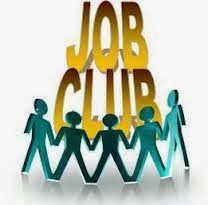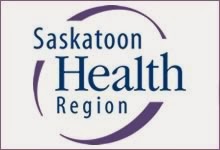Learn Earn Lead
Sustainable employment is critical to independence and self-suffiency for individuals, families and the community. The YWCA Employment and Learning Centre supports individuals in this process.
We are committed to helping our clients gain increased independence and ability in pursuit of their goals. Whether the need is a single appointment to prepare a resume or longer-term counseling to gain life and work skill, we are committed to supporting individuals on their life's journey.
We offer unique services in an effort to strengthen our community one person at a time.
We are committed to helping our clients gain increased independence and ability in pursuit of their goals. Whether the need is a single appointment to prepare a resume or longer-term counseling to gain life and work skill, we are committed to supporting individuals on their life's journey.
We offer unique services in an effort to strengthen our community one person at a time.
Friday, January 31, 2014
Thursday, January 30, 2014
February Job Find Club
The
Employment and Learning Centre is excited to announce an upcoming Job Finding
Club
Pre-session held
Wednesday, February 5th
9:30am
If you would like to
register please call (306) 244-7037 ext 176
Tuesday, January 28, 2014
CAREERS IN OIL AND GAS
So you are thinking about a career in the oil and gas industry but do not know where to start.
Well, I recently came across a great website called CAREERS IN OIL + GAS
It ahs lots of information on the industry...certainly more than your average career counsellor (i.e. me) would have. For example there is a series of commonly asked questions and answers
- What are the average salaries / wage pay rates for oil and gas workers? Is it true that oil and gas workers are well paid?
- What are the working conditions like for oil and gas workers?
- Are there other jobs in oil and gas besides working outside on a rig?
- What kind of jobs in oil and gas are in-demand?
- Where are oil and gas jobs found? Do I have to move to Alberta to work in oil and gas?
- What do I need to consider when relocating for a job in oil and gas? What are living conditions like in oil and gas communities? Is accommodation easy to find?
- Is it safe to work in oil and gas?
- How do oil and gas employers deal with drugs and alcohol?
- What kind of education and training do I need to work in oil and gas?
- Can I work as an apprentice in oil and gas?
- How do I choose a suitable career in oil and gas?
- How do I find oil and gas companies to work for in Canada?
If you aren't familiar with their site, feel free to explore! You can:
- Search for job postings in Canada's oil and gas industry
- Sign up for a job seeker account to receive career alerts
- Click on the Employer ads featured on the left side of the site
- Check out our Featured Employers page where you'll find a listing of companies
- Take our Career Quiz to learn about careers that fit your preferences
- Check out our Job Seeker Tools page and FAQ page for job search tips and resources
- Find out what the hiring trends are and in-demand jobs in the oil and gas industry
Friday, January 24, 2014
Thursday, January 23, 2014
Asset Building Workshop - Feb. 13, 2014
Thursday, February 13, 2014
9:30am - 11:30am
Room 302 - 3rd Floor Classroom
(child tending available)
9:30am - 11:30am
Room 302 - 3rd Floor Classroom
(child tending available)
Assets-
What are your assets?
How can we each recognize and value our assets?
How can these help us be more financially stable and move us from poverty to prosperity?
With a stronger asset base, people enjoy more sustainable and stable livelihoods.
Join us to understand how to use assets as a tool for self-evaluation and improvement.
To register call reception @ 306-244-7043 ext. 131
or speak to your Resource Coach/Employment Counsellor.
Presented in partnership with READ Saskatoon.
READ Saskatoon is a volunteer literacy organization that provides services to adults, families, workplaces and community. Last year we worked with over 2,000 members of our community: 870 adult learners received free literacy support from a program or trained literacy volunteer, 400 children and 300 parents participated in a Family Literacy program, and we supported the workplace literacy needs of over 12 businesses. For every $1 invested in our agency, we turn it into $8 volunteer labour.
Monday, January 20, 2014
Top 5 Worst Interview Answers
Job interviews are always stressful situations
in which you may often find yourself uncertain about how to answer a question.
While there is no set “right” way to answer every interview question, there are
certainly a few answers that a prospective employer never wants to hear.
These top 5 worst interview answers will almost certainly push
you into the “no” pile.
1. “I don’t know”.
1. “I don’t know”.
“I don’t know” is probably the worst answer you could give for
any question in an interview. For example, if you are asked why the company should
hire you, this answer shows that you are not even dedicated enough
to the potential job to think of an answer about your own strengths.
And
after all, if you don’t know why the company should hire you, how will they? A
good rule of thumb for interviews is to never answer any question with those
three words.
2. “I hated my last job”.
Even
if you quit your last job because it was a truly terrible experience, your
prospective employer does not want to hear about how much you hated your last
job, your co-workers, or your supervisor.
Badmouthing your previous employer will set off a red alert in your
interviewer’s head, telling him or her that you are not a team player or that
you do not follow through with your responsibilities.
Instead,
use a vague answer, such as, “It was not the ideal work environment for me,”
and then transition to discussing what you learned from that experience.
3. “I don’t like people”.
Unless you have found a rare job that has zero interaction with
other employees, customers, or clients, you should never tell your interviewer
that you don’t like people or that you do not work well with
others.
Again,
this will show the employer that you are not a team player and that you are
likely to cause problems in the workplace. Not working well with others is
almost certainly a deal breaker in any industry.
4. “I don’t have any questions”.
Near the end of an interview, the employer will always ask you
if you have any questions about the job. Even if you don’t, you should always try to think of at least
one or two questions to
further the discussion.
Not
having any questions shows a lack of interest in the position. In addition, by
asking the right questions, you can open the door for conversation about
aspects of the job that weren’t touched upon. This gives you the opportunity to
further discuss your qualifications and stand out.
5. Anything with profanity.
Finally, you should never use profanity in a
job interview at any
point. While it may not be a deal breaker, using profanity is a sign that you
are unprofessional in the workplace.
It
also shows that you cannot control your language and your potential employer
may have concerns about you accidentally slipping up in front of an important
client. This will leave a bad first impression and make it more likely that
another qualified candidate will land the job instead.
Source:

Source:

Friday, January 17, 2014
Monday, January 13, 2014
Job Interview Question…What is good customer service?
When
you are applying for a retail or customer service position a typical job
interview question is "What is good customer service?"
The interviewer wants to know what you consider quality customer service and how you would be willing to provide it to customers.
The interviewer wants to know what you consider quality customer service and how you would be willing to provide it to customers.
Here is a selection of sample answers you can use to respond to
questions about good customer service.
- Good customer service means having thorough knowledge of your inventory, experience with your products, and being able to help customers make the best choices for them.
- Good customer service is treating customers with a friendly, helpful attitude.
- Good customer service means helping customers efficiently, in a friendly manner. It's one of the things that can set your business apart from the others of its kind.
Friday, January 10, 2014
Monday, January 06, 2014
FOODSAFE Training - Saskatoon Health Region
FOODSAFE or a safe food handling course is a tool to help you find employment in the food industry.
Every year, thousands of Canadians are reported ill from food borne illnesses. Even more cases remain unreported. The actual number is now estimated at 2,000,000 cases per year. Many of the reported illnesses are as a result of eating foods that have been improperly handled in public eating eating establishments.
On May 7, 2009, the Food Safety Regulations were passed whereby mandatory food sanitation courses are required by law.
At least one person per shift must have successfully completed a recognized food handling course. This course is intended for owners, managers, supervisors, chefs, cooks, and all personnel responsible for purchasing, handling, preparing and serving food.
Every year, thousands of Canadians are reported ill from food borne illnesses. Even more cases remain unreported. The actual number is now estimated at 2,000,000 cases per year. Many of the reported illnesses are as a result of eating foods that have been improperly handled in public eating eating establishments.
On May 7, 2009, the Food Safety Regulations were passed whereby mandatory food sanitation courses are required by law.
At least one person per shift must have successfully completed a recognized food handling course. This course is intended for owners, managers, supervisors, chefs, cooks, and all personnel responsible for purchasing, handling, preparing and serving food.
FOODSAFE™ is a nationally recognized course taught by public health inspectors. At the end of the course, participants will write an exam. Upon passing the exam, participants will receive a nationally recognized certificate. The length of the course is eight hours and may be conducted in 2 half-day sessions or a full-day session. Both day and evening classes are available.
For more information on the Saskatoon Health Region's FOODSAFE Courses, please see the hyperlink below:
http://www.saskatoonhealthregion.ca/your_health/ps_public_health_inspection_fs_food_safe_classes.htm
Friday, January 03, 2014
Why is getting a grade 12 or GED important?
The knowledge and skills (read and process information, solve problems and communicate effectively) acquired while studying for and completing the GED (General Education Development) are considered equivalent to those of a grade 12 graduate.
A high school diploma or certificate is now considered the minimum requirement necessary to survive and hopefully thrive in the Saskatchewan/Canada labour market.
In Saskatchewan, 40% of adults 16 years and older (48% Canada) people have literacy rates below that of a high school grad and as a result would have difficulty meeting the growing literacy demands of a knowledge-based economy.
It is predicted that in the next five years, 2/3 of new and replacement jobs will require some type of post-secondary education.
Many employers will not hire someone who does not have a GED certificate or a high-school diploma. Future promotions and job changes will also be easier for GED graduates.
Technical schools offering post-secondary education such as SIAST usually require a high-school diploma or GED for enrolment.
GED Preparation Program
Class starts January 27th, 2014
Monday to Thursday 5:30 PM – 9:00 PM
Location: Quint Development (205-1120 20th Street West)
Mandatory Intake Session & Assessment Dates:
January 14th & 15th from 5:30-8:30pm
Call 978-4041 ext. 225 for more information
January: Job Finding Club
Job Finding Club
Pre-session
Wednesday, Jan 8th 2014 @ 9:30 a.m. in the JFC classroom
Wednesday, Jan 8th 2014 @ 9:30 a.m. in the JFC classroom
For more information contact your Employment Counsellor or Resource Coach
YWCA Saskatoon Employment & Learning Centre
YWCA Saskatoon Employment & Learning Centre
Thursday, January 02, 2014
January is Family Literacy Month
1.
Introduction to Family Literacy Certificate
Training
Date: Saturday, January 25,
2014 10:00 a.m.- 5 p.m. Saskatoon, SK
Cost: Training cost is subsidized - no cost to you! Bring a bag lunch.
Cost: Training cost is subsidized - no cost to you! Bring a bag lunch.
- Facilitation Skills in Family Literacy Training
New to leading Family
Literacy programs? Build your confidence in working with parents and
children, together and individually and have strategies for conflict
resolution.
- Discuss facilitation and teaching. Gain tools and
strategies to lead a program or session. Identify best practices in
program delivery.
- Training is a combination of theory, research and
approach.
- Compare and contrast facilitation and teaching.
- Examine differences in working with parents and
children together vs adults or children individually
Date: Friday, January 17,
2014 from 9 a.m. to 4 p.m. Saskatoon, SK
Cost: $100 (lunch and manual
included)
Prior Reading: Who, Me Lead a Group? By Jean Illsley Clarke
Registration: Call 306-652-5448 or email info@READSaskatoon.com or click here
Prior Reading: Who, Me Lead a Group? By Jean Illsley Clarke
Registration: Call 306-652-5448 or email info@READSaskatoon.com or click here
- Romp and Read Program Facilitator Training
Facilitators learn how to lead
theme-based Family Literacy camps for preschoolers and parents.
Workshops
focus on direct child and adult instruction, family cohesion and
positive parenting.
Romp and READ Program
training includes:
- An adaptable model that is ready to use
- Theme planning
- Age appropriate book making and literacy station
planning
- Evaluation and Assessments
- A mock session
Date: Saturday, January 18,
2014 – 10 a.m. to 5 p.m. Saskatoon, SK
Cost: $100 lunch, manual and
certificate included
Prerequisite: Introduction to Family Literacy Certificate.
Prerequisite: Introduction to Family Literacy Certificate.
- Financial Literacy Workshops
Does living debt- free interest
you? Get your finances in tip top shape by learning how to create a
budget that you can stick to. Pre-registration is required. All of our workshops
are offered at no cost to you!
Dates: monthly workshops on
various topics from Asset Building, Budgeting, Credit and Debt, Consumerism and
General Banking.
Visit READ Saskatoon's website for events and registration: http://www.readsaskatoon.com/events.html
Wednesday, January 01, 2014
The YWCA E&L Center is closed today
HAPPY NEW YEAR!!
We encourage you to use this day to reflect on the past year and make plans for the new year...Questions For Consideration
The year ends – look back:
What have you accomplished?What challenges did you face?
What are your happiest memories?
A new year begins – look forward:
What do you want to accomplish?
What will you learn?
What will make you happy?
More importantly, consider these questions:
How will you accomplish what you now only want?How will you learn what you need to learn?
How will you change in your life?
Never doubt that you are capable of being more than you are currently. Look at people who have achieved success – were they successful on their first try? No. In most cases, they faced failures, challenges, and disappointments. But, they went on to achieve success.
All of these people looked at where they were in life. They also looked at where they wanted to be, but one of the main differences is that they took action and ultimately changed their lives.
Subscribe to:
Posts (Atom)
















